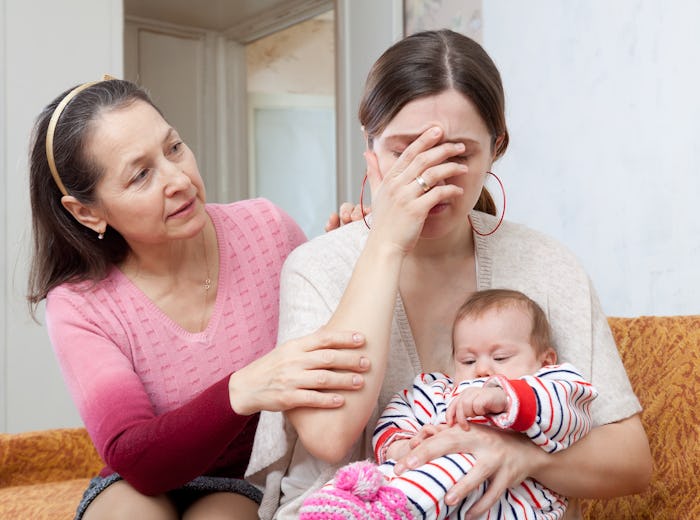Life

9 Things Every Mom Needs To Know To Survive Postpartum Depression
Giving birth to a child changes a woman's life in a million different ways. The physical effects are plain to see, but the hormonal and emotional ones are often hidden from view. You can love your baby to the moon and back, but that in no way means you're safe from struggling with postpartum depression (PPD). That's why there are some important things every mom needs to know to survive postpartum depression.
Moms who are dealing with PPD can often feel confused and embarrassed, but there is absolutely nothing to be ashamed of and no need to suffer in silence. Many women are shocked when they learn just how common it is, and how simple it can be to treat. Mention your feelings to a friend, and you may be surprised to hear her own tale of overcoming PPD. Even your favorite celebrities have suffered from PPD.
Postpartum depression is something no moms wants to think about. But the reality is that women need to know the signs, symptoms, and ways to beat it. Even if you're lucky enough to never deal with PPD yourself, you could end up saving the life of a friend, sister, or coworker if you know what to watch for.
1Know That It Can Happen To Absolutely Anyone
There's a reason millions of hits will come up if you search for postpartum depression online. It doesn't matter if you're a first time mom or you've already got a brood at home- PPD can strike anyone. The American Psychological Association estimated that as many as one in seven women are effected by PPD.
2It's Not Your Fault
No one truly knows why some women feel PPD. There are multiple causes of PPD, and there's not much you can do to prevent it. It's important not to blame yourself for what you're feeling.
3PPD Is Not The Same As "The Baby Blues"
Although both are unpleasant, the so-called "baby blues" are not the same as PPD. Fit Pregnancy noted that the baby blues are feelings of sadness, irritability, and exhaustion that usually clear up within 2 to 3 weeks. It's estimated that somewhere between 70 and 80 percent of women cope with baby blues, according to What to Expect. It's when those symptoms don't fade away,or they become worse that you know you're likely dealing with PPD.
4Know Your Risk Factors
Many women who are ultimately diagnosed with postpartum depression find that their symptoms actually kicked in during pregnancy. It's important to understand what your risk factors are because that knowledge can help you on the road to recovery.
5It's Very Treatable
With the right help, What to Expect reported that PPD is very treatable. The earlier you seek treatment, the sooner you a can make a full recovery and get back to enjoying your life and family.
6There Are Different Types Of Treatment
There's no universal way to treat PPD, and you can work with a doctor to make sure you get what you need. It may be speaking to a therapist, or going on an anti-depressant. Whatever sort of treatment you end up seeking, be proud of yourself for doing it.
7It May Not Kick In Right Away
Postpartum depression is very sneaky in that it may not rear its ugly head for a while. Baby Center noted that some women don't experience PPD until a year after birth.
8You Can Come Out Of It Stronger
Postpartum depression is a serious issue, but it's also important to remember that it's almost always just a temporary setback. As difficult as it is to cope with, some women say that they ultimately were able to find a silver lining.
9There Is So Much Help Available
When you are going through something as harrowing as postpartum depression, it's easy to feel like you're alone. The great thing is you absolutely are not. You might decide to open up to your partner or your friends, or you may turn to your doctor or medical resources online. Whatever your first step is, know that the decision to seek treatment is the best thing you can do for yourself and your child.